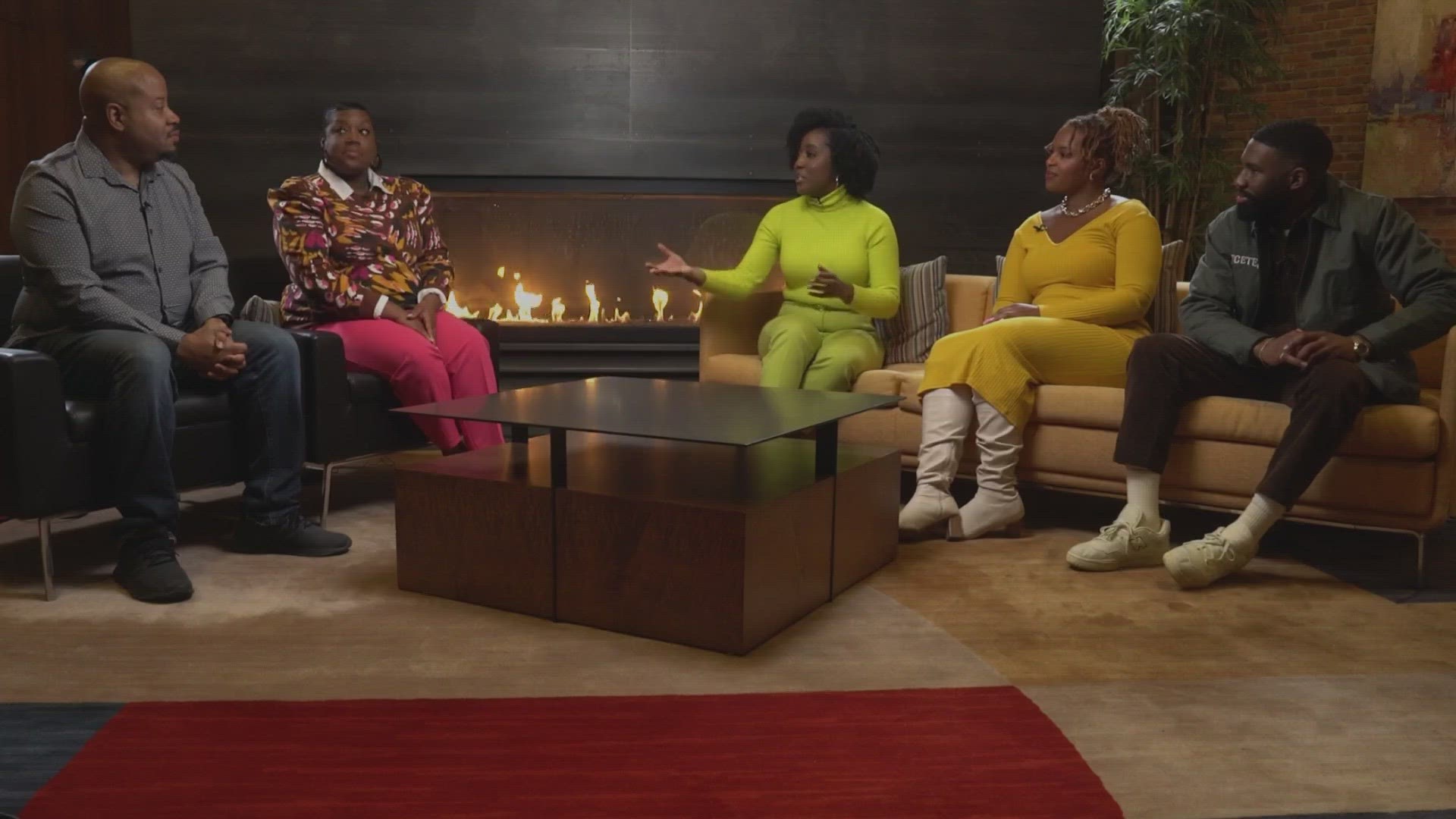SEATTLE — Cultivating Culture highlights Black innovators who are creating more spaces for community, expanding on the rich culture throughout the Pacific Northwest.
The latest U.S. census showed the Black population only stands at 4.5%. For many Black transplants, it can be hard to find a community.
We had a panel discussion with Black transplants and Washingtonians to compare the dynamic of how you see life in the Pacific Northwest, based on where they are from.
Derrick and Tanise Love moved to the Pacific Northwest in 2020 from Charlotte, NC. Dazjon Johnson is from Tacoma. Sydney Swonigan is from Seattle.
Derrick and Tanise created Sync Seattle, a monthly mixer to provide opportunities for networking amongst Black Seattle.
Johnson owns the clothing store eTc Tacoma and curates events for the community revolving around food, art, or entertainment.
Swonigan founded Exes & Babies to uplift and up-level co-parenting and blended families of all backgrounds through podcasts and coaching.
What were your initial thoughts when you arrived here in Seattle?
Derrick Love: "Arriving here, you know, you see, the area is beautiful. But then you don't see a lot of us, you know, so it was something that was very glaringly obvious to us that, you know, there wasn't as many of us as we're used to seeing around. We actually went back to the east coast a couple of months after moving here to visit some of my family in Baltimore. We were saying, Wow, there's so many Black people here. We had gotten used to not seeing people that look like us around.”
Tanise Love: "I think it took a while to get used to it. So again, moving from the South, and like, seeing us all day, every day, having to kind of shift our expectations and just shift our norm."
Derrick Love: "You start missing some of the smaller cultural elements. So for example, one of the last places we ate before leaving Charlotte was a soul food barbecue place. Coming here, I was like, Where can I get some good ribs? Who has the best fried chicken? I'm a food guy. So that's what I was looking for. It kind of became apparent that I would have to adjust to what the norms are here. I started liking some of the things that are prevalent around. I think I spent the first couple of months eating a whole bunch of teriyaki every time I got a chance for lunch, and loved it started loving it."
Swonigan: “I always feel for transplants or coming to Seattle looking for certain experiences when it comes to Black culture. I always feel bad and like, oh, what can we do to make you stay, don't leave, we need the numbers. It's unique for me when I've been to Baltimore, places like that, and gone through the grocery stores and I only see Black people for aisles and aisles. I didn't realize how surprised I would be. I didn't realize how white the space is here in Seattle. But there's so much beauty here in other ways and the community that is here is strong. We’re small but mighty."
Johnson: “I had the privilege of living in Alabama and going to HBCU and my family originates from the Carolinas. So I do miss a lot of good food spots out there that we don't have out here, but I think the diversity that we have here gives us the opportunity to be able to move in a lot of different rooms that a lot of people can't move in being Black because of seeing things differently. I think when you see the same thing all the time, you get used to that, you're not able to adjust as much when you do get outside of your norm. I think growing up here was a good way to be thrown into the melting pot of races and different ethnicities. Then we do go to a more predominantly Black area, you stand out a certain way and represent your culture still at a high level because of the experience that you have. But being able to go to the HBCU I totally understand and feel their energy. I think for us, it's about bringing the experience back to the Pacific Northwest. That has been my biggest purpose since coming back home after leaving my HBCU. I could have stayed in the South and enjoyed what we have out there."

